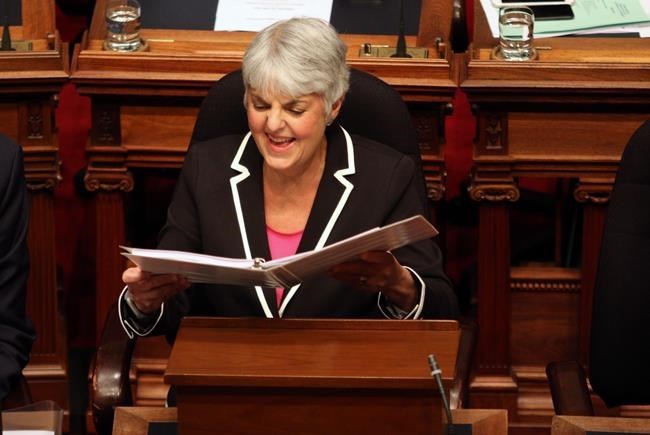 Housing and child care dominated B.C.’s budget nine days ago, and the two issues dovetail with parts of the federal budget released Tuesday.
Housing and child care dominated B.C.’s budget nine days ago, and the two issues dovetail with parts of the federal budget released Tuesday.
A background move announced last year to improve loans for rental housing was significantly enhanced. The federal Liberals put up $2.5 billion last April through the Canada Mortgage and Housing Corp. to lend for rental housing at better than commercial rates.
Projects that don’t need ongoing subsidies will be prioritized and are eligible for up to 100 per cent financing. Low-interest loans on 10-year terms were offered then.
Tuesday’s budget acknowledged more needs to be done. “Unfortunately, high demand for rental housing has not translated into an increase in supply.” It cited Vancouver’s sub-one per cent vacancy rate as one reason why the funding will be increased to $3.75 billion over three years.
The new funding is aimed at projects for modest- and middle-income households in expensive markets, a qualification that Victoria would meet. The extra money is expected to spur construction of more than 14,000 new rental units across Canada, which would amount to a few thousand in B.C. and a correspondingly smaller number on the Island.
The budget also earmarks $113 million a year over five years separately to CMHC to expand the initiative further.
The B.C. budget last week concentrated mostly on home ownership, aiming an array of taxes at speculators and owners of higher-end homes. It came with a 30-point housing-affordability plan that promised more than 14,000 rental units for the “missing middle” by way of $378 million over three years to build rentals. That followed a promise after the NDP took power of $208 million to build 1,700 more rentals. No explanation was given for why the price-per-unit in the separate promises is so out of whack.
And there is intense Opposition skepticism about the longer-range promises the B.C. government made about 114,000 new starts on units of all types over 10 years. The government last year tried to reframe that number as an estimate of need, rather than a target.
With the feds making more cheap money available to back construction, it will help in the construction of at least some new rental units — if enough of it arrives in B.C.
On the broader housing issue, the federal government is banking on an easing of prices. The budget says the market has become more balanced in Vancouver. Single-family detached prices have slowed, although condo prices are still going strong. Nationally, it says housing demand will be tempered by rising interest rates and tighter mortgage-qualification standards.
B.C. Finance Minister Carole James welcomed the spending, but noted some of it is pushed off in the future, although the housing crisis is more immediate. She was also pleasantly surprised to see Ottawa recognize and adopt B.C. concerns and measures about real-estate tax evasion and the need for full disclosure of ownership.
The budget also continued the emphasis on child care that started last year with a $7.5-billion funding promise. B.C. and federal officials signed a sub-agreement last week on that issue, and the B.C. budget poured $1 billion into child-care funding over the next three years. Ottawa is supplementing that to the tune of $153 million over three years.
A separate Indigenous child-care spending program was outlined, as well as a research program to close data gaps and “understand what child care looks like in Canada.”
Despite federal NDP criticisms, James said B.C.’s priorities were reflected in the federal budget. She wants to go over the details when it comes to the timing. The provincial and federal budgets are comparable in general philosophy — spend as much as possible on people who need the most — and on specific priorities. Gender equity was a huge priority in Tuesday’s budget, which matches up with B.C.’s child-care ambitions. First Nations reconciliation is getting top billing in both governments.
Ottawa also singled out the opioid crisis for attention, and B.C. is still considered ground zero, as far as the death toll is concerned.



